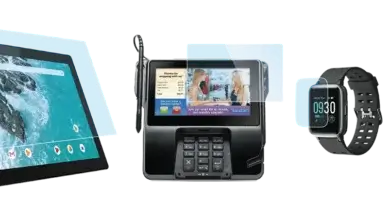Halal certification standards followed around the world

Halal certification is an essential process for businesses that want to comply with Islamic dietary laws and offer products that meet halal standards. The term “halal” means permissible in Arabic, and it applies not only to food but also to other products such as cosmetics, pharmaceuticals, and even services. A halal certification is a formal document issued by a recognized Islamic authority, confirming that a product or service meets the requirements outlined by Islamic law. This certification provides assurance to Muslim consumers that the products they purchase are safe, hygienic, and compliant with religious beliefs.
In today’s global market, halal-certified products are in high demand, particularly in countries with large Muslim populations. By obtaining halal certification, businesses can expand their market reach, increase consumer trust, and enhance brand reputation. Whether you’re running a food processing plant, a restaurant, or a cosmetics brand, getting halal certification demonstrates a commitment to quality and inclusivity.
Who Needs Halal Certification?
Halal certification is not limited to food manufacturers alone. Any business involved in the production, handling, packaging, or distribution of products that may be consumed or used by Muslims should consider obtaining halal certification. This includes restaurants, food trucks, slaughterhouses, cosmetic brands, pharmaceutical companies, and even logistics firms that transport halal goods.
In addition to producers, businesses that want to export goods to countries with strict halal regulations, such as the UAE, Saudi Arabia, Malaysia, or Indonesia, are often required to provide halal certification before gaining entry into those markets. Many governments and halal accreditation bodies worldwide have made halal certification a mandatory requirement for imports, especially for meat and dairy products.
Steps Involved in the Halal Certification Process
Obtaining halal certification involves a detailed and structured process. Businesses must comply with the standards and guidelines set by the certification authority they choose. While the exact steps may vary slightly depending on the certifying body, the general process includes the following:
- Application Submission: The first step is to apply for halal certification by contacting an accredited halal certification body. The application form typically requires information about the nature of the business, the type of products or services offered, the production process, and ingredients used.
- Documentation Review: The certification body will request documentation related to the raw materials, ingredient sources, production processes, storage, and handling procedures. They will assess whether the business complies with Islamic guidelines.
- Inspection and Audit: A team of auditors from the halal certification body will visit the facility to inspect the premises and evaluate the process. They will ensure that no cross-contamination occurs and that all practices align with halal principles.
- Laboratory Testing (if required): In some cases, products may be subjected to lab testing to ensure that they do not contain any haram (forbidden) substances, such as pork or alcohol.
- Compliance and Recommendations: If any issues are found, the certification body may provide recommendations for corrective actions. The business must comply with these suggestions before proceeding.
- Issuance of Halal Certificate: Once the business meets all the requirements, the halal certification body will issue a halal certificate that is valid for a specific period (usually one to two years).
- Periodic Surveillance and Renewal: Certification is not a one-time process. Businesses must undergo regular audits and renew their certificates to ensure ongoing compliance.
Benefits of Having Halal Certification
There are several benefits to obtaining halal certification, both from a commercial and ethical standpoint. First and foremost, it opens doors to a larger consumer base. With over 1.9 billion Muslims worldwide, the halal market represents a multi-trillion-dollar global industry. Businesses with halal certification can tap into this growing demand, especially in regions such as the Middle East, Southeast Asia, and parts of Africa.
Secondly, halal certification boosts consumer confidence. When customers see a halal logo on a product, they are more likely to trust that it aligns with their religious and ethical beliefs. This trust can lead to increased customer loyalty and repeat business.
Moreover, halal certification is a mark of quality. It signifies that the product is free from harmful substances, manufactured under hygienic conditions, and handled responsibly. These qualities are attractive not only to Muslim consumers but also to non-Muslims who value safety and transparency in the products they consume.
Challenges Faced by Businesses During Halal Certification
Despite its advantages, obtaining halal certification can be challenging for some businesses. One common hurdle is the lack of awareness or understanding of what constitutes halal. Misuse of ingredients, poor documentation, or cross-contamination can lead to delays or rejection of certification.
Another issue is the cost. Depending on the type of business and the scope of the certification, the process can be expensive. However, this investment often pays off in the long term by increasing sales and market opportunities.
Businesses also need to navigate different certification standards, as requirements may vary between countries and certification bodies. Choosing a recognized and reputable halal certification body is essential to ensure global acceptance of the certificate.
How to Choose a Reliable Halal Certification Body
Selecting the right halal certification body is a crucial step in the process. Look for certifiers that are accredited by reputable organizations such as the Emirates Authority for Standardization and Metrology (ESMA), the Islamic Food and Nutrition Council of America (IFANCA), or the Department of Islamic Development Malaysia (JAKIM).
Make sure the certification body offers transparent processes, experienced auditors, and international recognition. It’s also important to consider their customer support and how they handle audits and renewals. Reading reviews and testimonials can provide insight into their professionalism and reliability.
Conclusion
In today’s diverse and competitive marketplace, halal certification is more than just a religious label—it is a symbol of quality, integrity, and consumer trust. Businesses that obtain halal certification gain a significant advantage by catering to the needs of Muslim consumers while also adhering to high standards of safety and cleanliness. From food and beverages to cosmetics and pharmaceuticals, the scope of halal-certified products continues to grow, and businesses that adapt to this trend are better positioned for long-term success.
For those seeking a credible partner in this journey, halalbureau offers expert guidance and internationally recognized halal certification services to help businesses meet Islamic compliance and achieve global reach.








